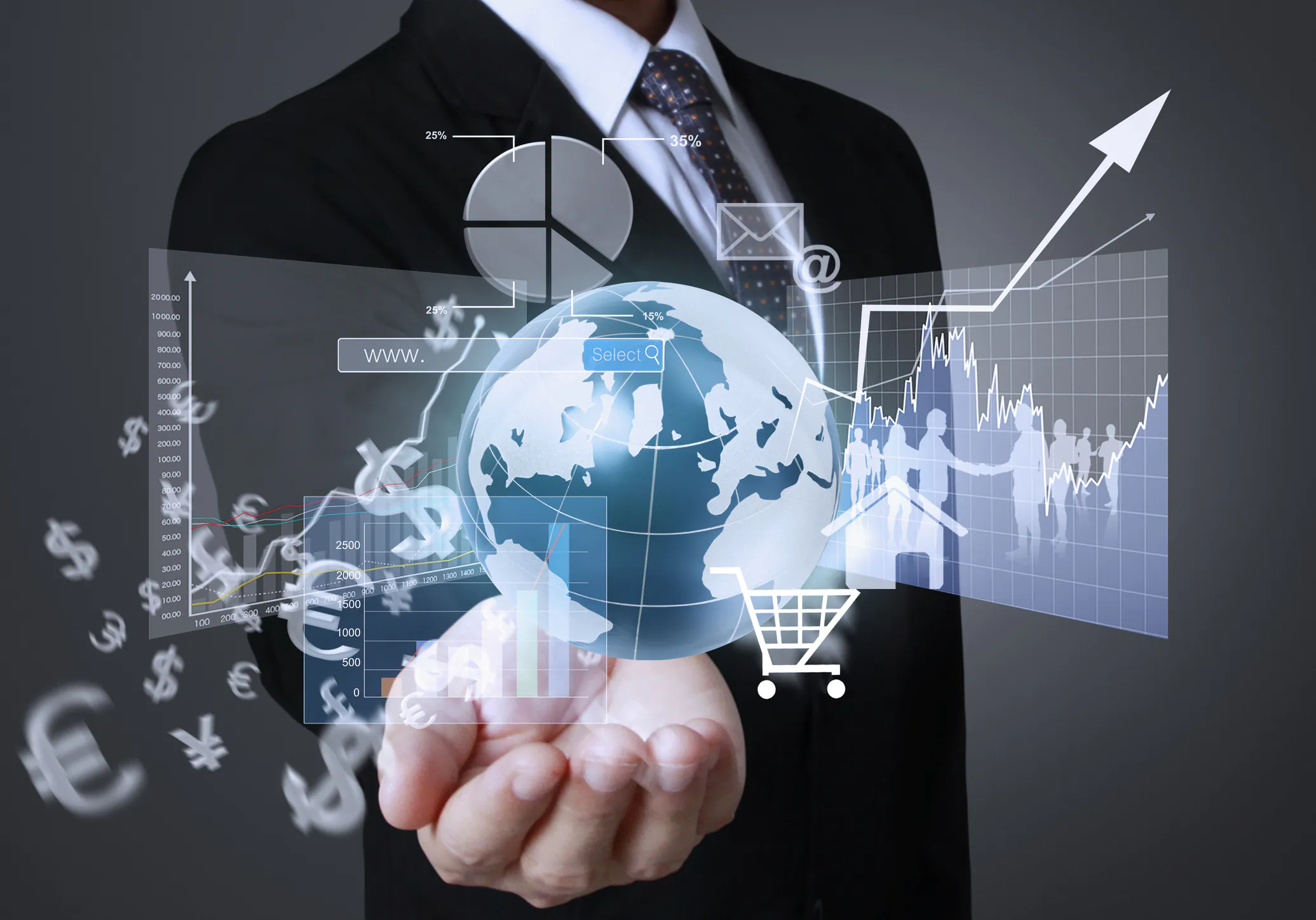Business intelligence has transformed how organizations interact with data, shifting from spreadsheets to dynamic visualizations and from lengthy reporting processes to self-service analytics. However, for many, the barriers to effective analytics still remain.
This is where generative AI is making waves across industries, including data analytics. It opens up new possibilities for business insights and experiences. However, it’s crucial to establish and maintain trust in this emerging technology as companies work to pinpoint the right audience and solve relevant problems.
Let’s explore how Tableau empowers everyone in your organization with the next generation of reliable, AI-driven analytics.
Book a demo to experience the meaningful insights we derive from data through our analytical tools and platform capabilities. Schedule a demo today!
Request a Free DemoTable of Contents
What is Tableau AI?
Tableau AI is a cutting-edge suite of AI-powered analytics capabilities designed to drive impactful business outcomes across organizations. Fully integrated into the Tableau platform, it delivers trusted AI that simplifies and democratizes data analysis, enabling seamless insight generation at scale.
Harnessing the power of generative AI (GAI)—a specialized branch of AI that identifies patterns, learns from data, and generates entirely new content—AI in Tableau takes user input and transforms it into meaningful outputs. This innovation brings the user experience into the realm of generative AI, breaking down barriers to data-driven insights and delivering actionable information when and where it’s needed.
AI in Tableau empowers business users with smart, personalized, and contextual insights seamlessly integrated into their workflow. For data analysts, this advanced AI capability accelerates time-to-insights and reduces repetitive tasks through intelligent recommendations and in-product guidance, all within a trusted and reliable framework. By leveraging AI in Tableau, organizations can enhance data-driven decision-making, improve efficiency, and unlock deeper analytical capabilities
Tableau AI Features: Unlocking the Power of Data
Tableau’s suite of AI capabilities includes several groundbreaking features that make data analysis more intuitive and insightful. Let’s break down some of these key features
1. Tableau Smart Analytics
Tableau smart analytics refers to the platform’s ability to automatically generate recommendations, visualizations, and insights based on the data being analyzed. The Tableau AI tools use machine learning to identify trends, correlations, and outliers that users may otherwise overlook. This smart functionality helps businesses make faster, data-driven decisions without needing to spend excessive time on manual analysis.
2. Tableau Predictive Analytics
One of the most impactful features of Tableau predictive analytics is its ability to forecast future trends based on historical data. By using machine learning models, Tableau provides users with predictions about sales, customer behavior, and other key metrics. This empowers organizations to proactively plan and adjust strategies based on predicted outcomes rather than just reacting to past performance.
3. Tableau AI-Powered Dashboards
With Tableau AI-powered dashboards, businesses can create highly interactive and dynamic visualizations that adjust in real-time based on AI-driven insights. These dashboards can automatically update as new data comes in, ensuring that decision-makers are always working with the most up-to-date and relevant information. Moreover, Tableau AI data visualization enables users to quickly interpret complex datasets and trends with intuitive visual elements, such as heatmaps, scatter plots, and predictive trend lines.
4. Tableau Machine Learning Models
Tableau’s machine learning models are designed to help businesses build and deploy predictive models directly within the platform. These models can be used for a wide range of applications, from customer segmentation to demand forecasting. The integration of Tableau machine learning allows users to make data predictions with greater accuracy and efficiency, all within the same familiar Tableau interface.
5. Tableau Augmented Analytics
Tableau augmented analytics combines AI, machine learning, and natural language processing (NLP) to help businesses explore their data in new ways. The platform can automatically suggest insights, identify anomalies, and offer explanations for trends. Tableau AI data exploration is simplified as users can interact with data by asking natural language questions, making it easier to uncover hidden insights without needing to be an analytics expert.
6. Tableau Automation
With Tableau automation, businesses can set up automated workflows to trigger actions based on specific conditions or trends identified by the AI system. This includes automated alerts, report generation, and data refreshes, all of which save time and ensure that teams are always working with the most relevant data. Tableau automation significantly reduces manual intervention and accelerates the decision-making process.
7. Tableau AI Insights
One of the most valuable aspects of Tableau AI insights is its ability to surface trends and outliers that might not be immediately obvious to users. These insights are generated through AI algorithms that analyze large datasets and provide recommendations on what to focus on. Whether it’s identifying an emerging market opportunity or spotting a potential issue with sales performance, Tableau AI-driven analytics help users prioritize their efforts and resources effectively.
Benefits of Tableau AI-Driven Analytics
Tableau’s integration of AI and machine learning offers numerous benefits for businesses seeking to improve their data-driven decision-making processes:
- Enhanced Decision-Making: By combining human intuition with AI-driven insights, businesses can make more informed and confident decisions.
- Increased Efficiency: With automation and AI-powered features, organizations can save time on repetitive tasks and focus on higher-level strategic planning.
- Improved Forecasting: Tableau predictive analytics helps businesses forecast future outcomes with greater accuracy, improving their ability to plan ahead and mitigate risks.
- Better Data Interpretation: Tableau AI models and smart analytics allow users to interpret complex data in a more intuitive and actionable way, even if they don’t have technical expertise.
- Competitive Advantage: Organizations that leverage AI-driven analytics can gain a competitive edge by uncovering insights that others may miss.
How does tableau use AI
Here are some practical use cases where Tableau AI tools can have a significant impact:
| Use Case | Description |
|---|---|
| Sales Forecasting | Leverage Tableau predictive analytics to forecast sales trends based on historical data, improving inventory and resource planning. |
| Customer Behavior Analysis | Use Tableau machine learning models to segment customers and predict buying behaviors, enhancing targeting and personalization efforts. |
| Financial Planning | Apply Tableau AI insights to analyze financial data, identify trends, and predict future cash flow, enabling better budgeting and risk management. |
| Market Trend Detection | Tableau augmented analytics can automatically detect market shifts and recommend actions to capitalize on emerging trends. |
| Operational Efficiency | Automate routine data reporting and analysis tasks with Tableau automation, freeing up time for strategic initiatives. |
Experience the advantages firsthand by testing a customized complimentary pilot designed to address your specific requirements. Pilot studies are non-committal in nature.
Request a free pilotConclusion
As businesses continue to collect more data, the need for powerful tools that can process, analyze, and interpret that data grows. Tableau AI offers a robust set of features that integrate machine learning, predictive analytics, and augmented analytics to turn raw data into actionable insights. By incorporating AI-driven analytics, businesses can not only optimize their decision-making processes but also stay ahead of the competition in today’s fast-paced data landscape.
Whether you’re looking to automate reporting, improve forecasting accuracy, or simply explore your data more efficiently, Tableau AI tools provide the capabilities needed to unlock the full potential of your data.
Get started with your complimentary trial today and delve into our platform without any obligations. Explore our wide range of customized, consumption driven analytical solutions services built across the analytical maturity levels.
Start your Free Trial



